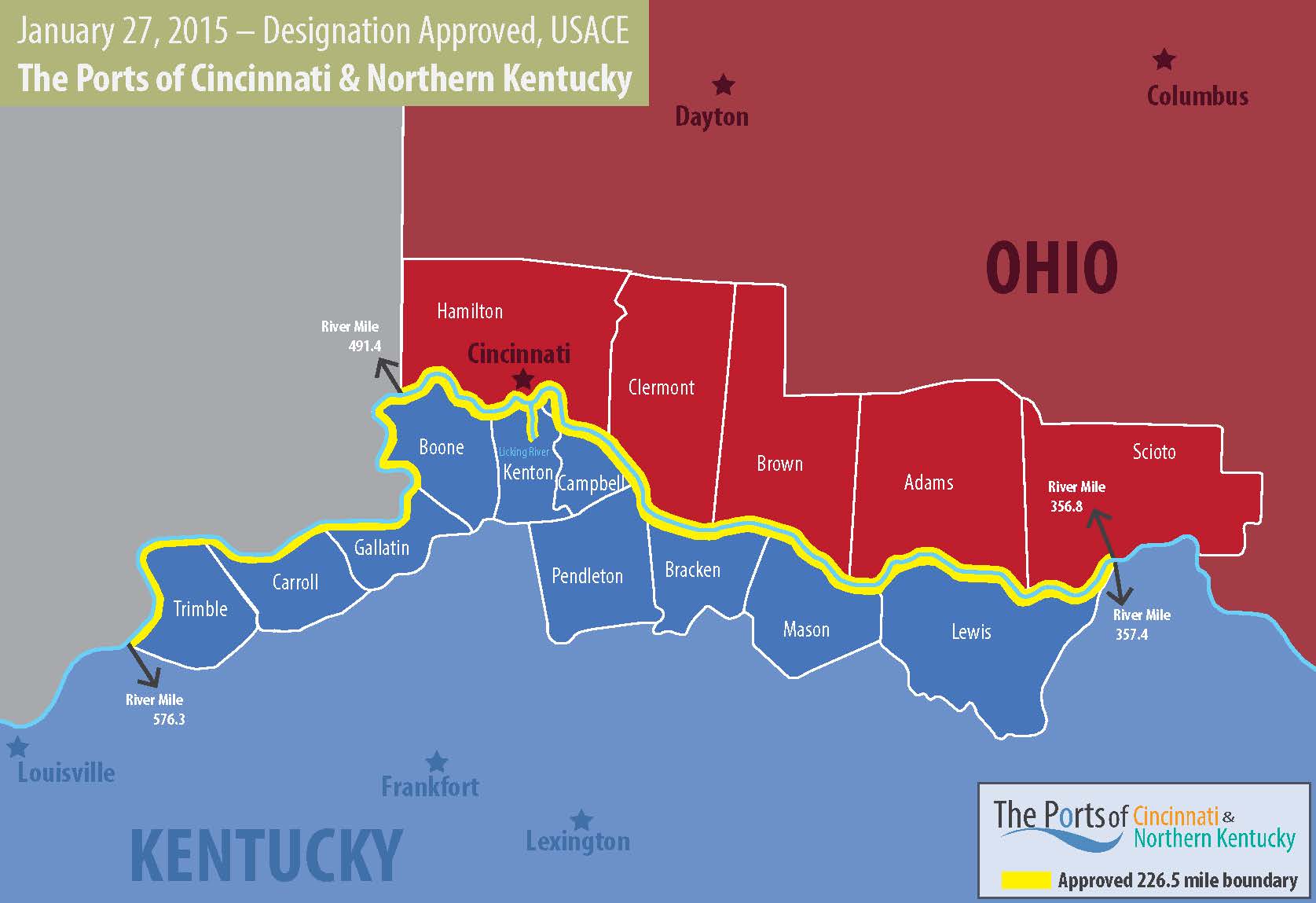About Us
The Northern Kentucky Port Authority (NKY Port) was jointly formed as an economic development organization by Boone, Campbell, and Kenton counties in 1968 under the provisions of KRS 65.510 to 65.650.
The NKY Port is a managed entity of BE NKY Growth Partnership and it was activated in 2022 as a real estate and development tool as a key initiative of the Build + Elevate Northern Kentucky investor campaign.

Real Estate and Development Tools for NKY
The statute regulating Kentucky port authorities provides financing, development and real estate tools that can be used to enhance commercial and industrial developments.
BE NKY seeks to leverage the NKY Port’s ability to identify, control, prepare, and promote sites for subsequent private commercial and industrial development and redevelopment with a focus on wages that exceed current community employment levels.
“Bringing the Northern Kentucky Port Authority to life is a cornerstone of BE NKY’s Build + Elevate NKY campaign. Over the past two years, the NKY Port has been a powerful driver of commercial and industrial growth in our region. By bridging critical gaps, it empowers the private sector to transform bold development visions into tangible progress for our community.”
Brian Bozeman, Vice President, Business Development, Skanska

Ports of Cincinnati & Northern Kentucky
The Ports of Cincinnati and Northern Kentucky form an inland port jurisdiction that includes over 220 miles of commercially navigable waterways adjacent to Ohio, Kentucky, and Indiana. The Northern Kentucky Port Authority and Port of Greater Cincinnati Development Authority collaborated and received final approval from the U.S. Army Corps of Engineers for the combined 226.5 mile port district in 2015.
Because the Ports of Cincinnati and Northern Kentucky are recognized as a jurisdictional body, dozens of private marine terminals provide and operate the infrastructure within the 226.5 mile port district. These active marine terminals handle a wide range of commodities, including coal, limestone, sand and gravel, gypsum, petroleum and petroleum products, grain, steel, cement, and fertilizer. The many port terminals within the jurisdiction, whose boundaries include 15 counties in Ohio and Kentucky, are managed by private companies and several have access to Class I rail service either directly or via short-line operators.

